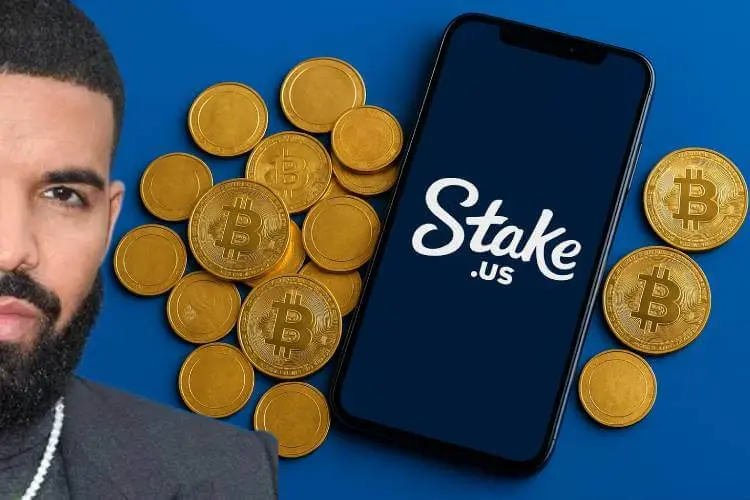Drake Sued Over Stake: Rapper Faces Crypto Casino Claims


Rapper and global celebrity Drake is now the focus of a class-action lawsuit in Missouri that ties his name to Stake, one of the most controversial online gambling platforms in the world. The filing accuses the musician of helping promote what lawyers describe as an illegal crypto-based sweepstakes casino that misled players about the risks involved.
The case, lodged in Jackson County Circuit Court, claims Drake’s public partnership with Stake blurred the line between entertainment and gambling. It’s the latest example of how celebrity marketing is colliding with tightening U.S. gambling laws.
How the Lawsuit Came About
Missouri resident Justin Killham brought the action against Stake’s parent company, Sweepstakes Limited, and its two celebrity partners, Drake and online streamer Adin Ross. According to court documents, Killham lost money using Stake.us, the company’s U.S.-facing version of its crypto casino.
The complaint says the site presents itself as a harmless “social casino” where users play with virtual coins, but that design conceals a second currency, “Stake Cash”, that can be converted to cryptocurrency or real money. This system, the lawsuit argues, makes Stake an unlicensed casino operating outside Missouri law, which bans online casino gambling altogether.
Drake’s Role and the Marketing Dispute
Drake, who began working with Stake Casino in 2022, has frequently streamed his betting sessions on social media. His posts showing million-dollar wagers and flashy wins helped make Stake a household name among younger followers.
Lawyers now allege those sessions were promotional stunts funded by the platform itself rather than genuine personal bets. They claim the rapper’s partnership served to make high-risk gambling appear glamorous and easy, a tactic that lawyers say particularly influenced younger fans drawn in by his celebrity image.
The complaint refers to this pattern as the “Drake Effect,” describing how fame and social reach can turn gambling into an aspirational lifestyle brand rather than a regulated financial risk.
Inside Stake’s Business Model
Stake’s U.S. operation mirrors its international platform, which is licensed in Curaçao and allows users to gamble directly with cryptocurrencies such as Bitcoin and Ethereum. The company markets its U.S. site as “for entertainment only,” yet the lawsuit claims its virtual economy has real-world value.
Players purchase coin bundles that come with “free bonuses” convertible to crypto rewards, creating what lawyers call an “illusion of free play.” With game types ranging from slots and roulette to live dealer tables, the site’s format resembles a fully operational casino rather than a casual game hub.
Legal and Industry Reactions
Legal experts say the case could mark a new frontier in accountability for influencer-driven marketing. Instead of targeting only the company, the Missouri filing also holds celebrity promoters responsible for allegedly helping an unlicensed casino attract U.S. players.
Some attorneys note that the lawsuit could expand the idea of “facilitator liability,” where endorsers face consequences for promoting unlawful online betting. Others argue that similar cases in Washington and California have already pressured the “social casino” industry to rethink its reward-for-crypto mechanics.
Regulatory Pressure on Stake
Stake has grown rapidly since its 2017 launch, reporting more than $4 billion in annual revenue in 2024. That success has come with scrutiny. Regulators in the United Kingdom suspended its license earlier this year over compliance concerns, while several U.S. states have issued warnings about sweepstakes-style gambling.
The Missouri lawsuit is the first to name Drake as a defendant, potentially setting a precedent for future actions in states where Stake.us operates.
Next Steps in the Drake and Stake Casino Legal Battle
A hearing date has yet to be announced, and none of the defendants has responded publicly. The class action seeks financial compensation for affected users and an injunction preventing further promotion of the platform within Missouri.
If the court sides with the plaintiffs, it could send a strong message to brands that rely on celebrity endorsements, especially in industries that skirt regulatory grey areas like crypto gambling.
Why the Drake Stake Case Could Change Celebrity Gambling Deals
The Drake Stake lawsuit goes beyond one celebrity partnership. It highlights how crypto casinos, social media, and influencer marketing intersect in ways regulators are only starting to address.
For consumers, the takeaway is clear: if a platform promises “free play” but links to cryptocurrency or cash rewards, it may not be as harmless as it looks. For celebrities, it’s a warning that the glamour of endorsement can quickly turn into legal exposure when gambling laws are involved.
Was this article helpful?


